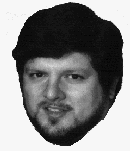

About the Author 
Tim Reed is a motion picture projection and sound engineer who has a special place in his heart for the drive-in theatre. As a child in Kentucky, he gravitated toward the projection booths of drive-ins frequented by his parents. At age 12, he finally became the "apprentice" of a professional projectionist he had befriended in one of those drive-ins. The young man eventually became well-known with other local operators. Although, he could not legally work until age 16, the area projectionists welcomed him and offered additional guidance in the trade.
These experiences afforded him a familiarity with all sorts of equipment, old and new, making him a valuable addition to the local union's roster by age 18. He quickly worked his way up to a position as chief projectionist at Lexington's Kentucky Theatre. There, he learned basic electronics, by reading books in the spare time between reels. He earned technical certification from Dolby Laboratories in 1980. This led to eligibility for a service position with the former Altec Service Corporation.
After completing electronics training, Reed moved to Houston, TX in 1985, where he
performed service work and became affiliated with the LucasFilm, Ltd. Theatre Alignment
Program. Reed represented LucasFilm on every 70mm film release; for theatres in Texas,
Louisiana, Arkansas, Arizona and New Mexico. He's also been involved in engineering
several studio location screenings, for films in production, and for world premieres.
After industry assignments in Oklahoma and Illinois, he is currently employed by
Entertainment Engineering in Louisville.
A prior return to Kentucky, and a revisiting of
his drive-in theatre roots, is outlined in the accompanying
article. After spending the remainder of his field engineering
career in Pennsylvania, New Jersey, and New York throughout the 2000s,
he is presently retired and living in Ohio.
Reed's hobbies include collecting B-Western movies; amateur radio (in which he holds an Extra-Class license and the call sign W3HR); computers; remastering intermission trailers; and of course, drive-in theatre technological history.
Be sure to read, Keeping the Lights On... a drive-in projectionist's story.

